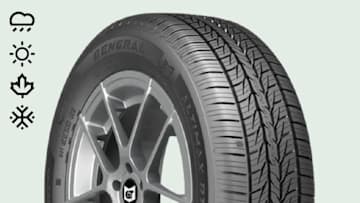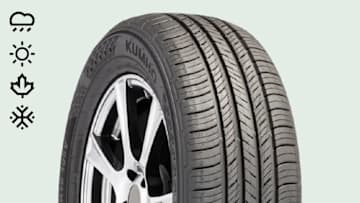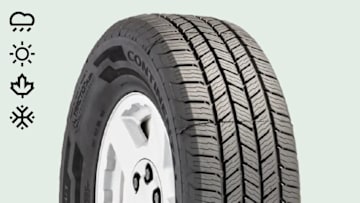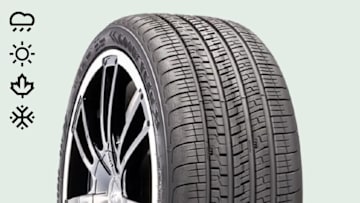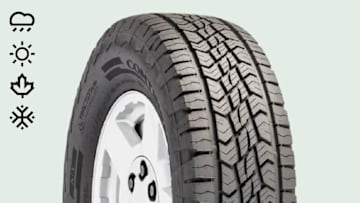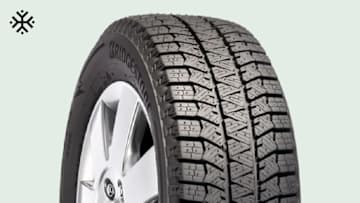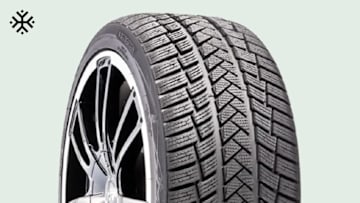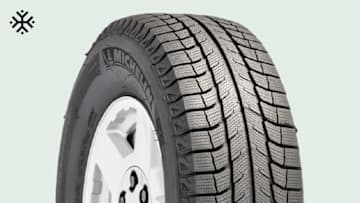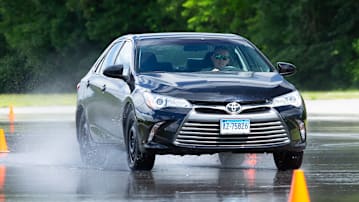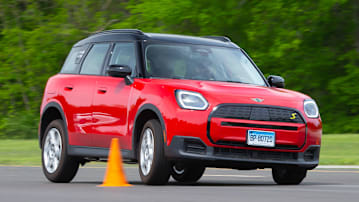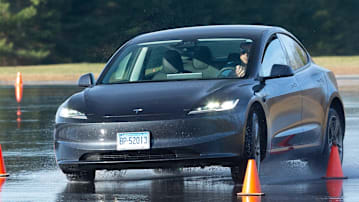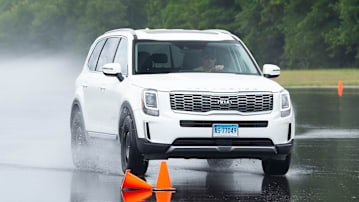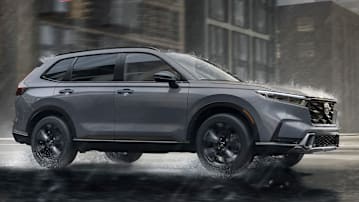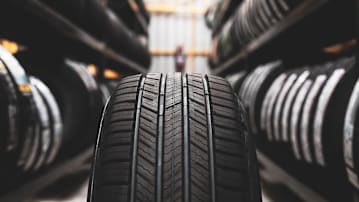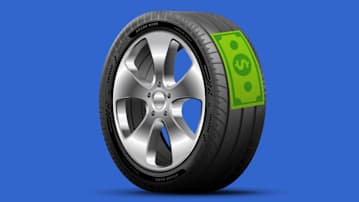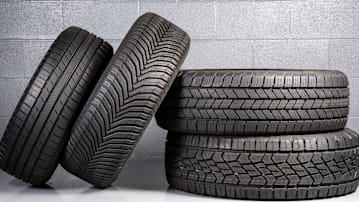Choose the Right Tires for Your Vehicle
The tread life of a tire is finite and will vary by car type, tire type, driving aggressiveness, and road and weather conditions. Maintenance and responsible driving can maximize the mileage you get from your tires. Monthly tread inspections can reveal when your tires need replacement.
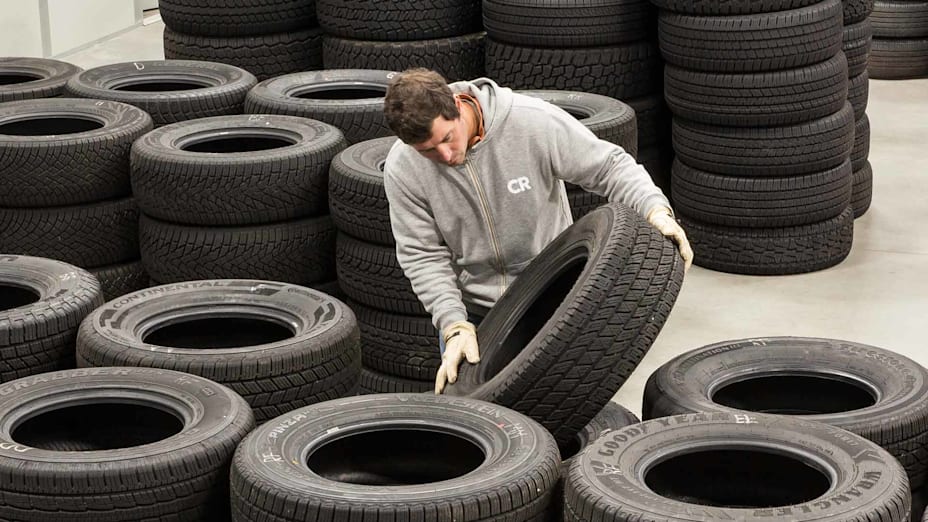

Managing Editor, Autos
Top Tires Questions
When should I buy new tires?
How to read a tire sidewall and what can it tell me?
-
Size:
On this tire, 235 is the cross-section width in millimeters; 65 is the ratio of sidewall height to width (65 percent); R indicates radial-ply construction; and 17 is the wheel rim diameter in inches.
-
Load index:
Shorthand for the maximum weight each tire can safely carry when properly inflated. This converts to a scale, with cars typically ranging from 75 to 100. The 94 here means 1,477 pounds per tire, typical of a midsized car tire.
-
Speed rating:
This is a tire’s maximum speed when carrying a load defined by the load index. All-season tires are usually rated T (118 mph), H (130 mph), or V (149 mph). Winter tires may have the letter R (106 mph) or higher.
-
Treadwear, traction, and temperature scores:
Required grades on all tires and assigned by manufacturers to convey a tire's performance for wet traction, heat dissipation, and treadwear. For more info, read Understanding the UTQG System for Tires.
-
Manufacture date code:
This Department of Transportation number comes after the letters on the sidewall. The last four digits are the week and year the tire was made. A tire made the 4th week of 2024 will read 0424.
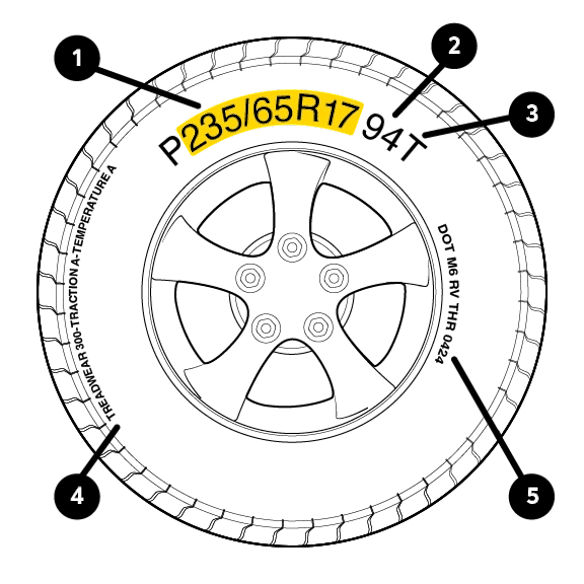
What are the different tire types?
-
All-Season Tires
speed rating T (118 mph), H (130 mph), or V (149 mph)what to knowAll-Season Tires Ratings- All-season tires come in sizes to fit small cars to light-duty SUVs and pickups.
- They offer year-round traction, long treadwear, and a comfortable ride.
- But all-season tires typically lack the precise handling and grip of performance tires.
-
All-Season SUV Tires
Speed rating H (130 mph) or V (149 mph)what to knowAll-Season SUV Tires Ratings- All-season SUV tires are designed for modern SUVs, splitting the difference between car and truck tires.
- They’re tuned for the performance, comfortable ride, and light-duty towing capabilities of those vehicles.
-
All-Season Truck Tires
Speed rating S (112 mph), T (118 mph), or H (130 mph)what to knowAll-Season Truck Tires Ratings- All-season truck tires are designed for the heavy loads of SUVs or pickups.
- These are well-rounded tires designed to perform well in most conditions.
-
Ultra-High-Performance Tires
Speed rating ZR (149-plus mph), W (168 mph), or Y (186 mph)what to knowUltra-High-Performance Tires Ratings- All-season and summer UHP tires are often fit to upscale and sporty vehicles.
- Designed to provide good handling and responsive steering in wet and dry conditions, but treadwear and ride comfort are common compromises.
- Summer UHP tires aren’t meant for cold weather and won’t grip in snow or ice.
-
All-Terrain Truck Tires
Speed rating S (112 mph) or T (118 mph)what to knowAll-Terrain Truck Tires Ratings- Engineered for more heavy-duty applications, all-terrain truck tires are suitable for use on paved roads and for light off-road use.
- The more rugged tread is designed to provide added traction on unpaved and snowy roads.
-
Winter/Snow Tires
Speed rating Q (99 mph), R (106 mph), S (112 mph), T (118 mph), H (130 mph), or V (149 mph)what to knowWinter/Snow Tires Ratings- Winter/snow tires offer superior grip to go, stop, and corner in cold, inclement weather.
- Rubber is formulated to stay pliable at freezing temperatures.
- Intended just for seasonal use, to be removed when spring arrives.
- Generally take longer to stop than all-season tires on cleared roads.
-
Performance Winter/Snow Tires
Speed rating H (130 mph) or higherwhat to knowPerformance Winter/Snow Tires Ratings- These tires come in sizes to fit cars using UHP all-season and summer tires.
- Designed to be seasonal replacements for those vehicles, providing improved cold-weather grip.
-
Winter/Snow Truck Tires
Speed rating R (106 mph), S (112 mph), or T (118 mph)what to knowWinter/Snow Truck Tires Ratings- Truck winter/snow tires are specifically designed for pickups and SUVs.
- As with car winter/snow tires, always use truck winter/snow tires in a set of four for optimum grip to go, stop, and corner.
Tire Selector
Our Tire Selector tool provides two quick ways to find the right tire for your needs. Search by vehicle (year, make, model) or by tire size (width, aspect ratio, wheel size), and we'll list the best tested tires that fit.
Find Your TiresHow to read your tire’s treadwear
- Overinflation
- Evidence: Fast center wear
- Underinflation
- Evidence: Fast shoulder wear
- Misalignment
- Evidence: Fast wear on one side of the tire
- Properly Maintained
- Evidence: Even wear across the tire
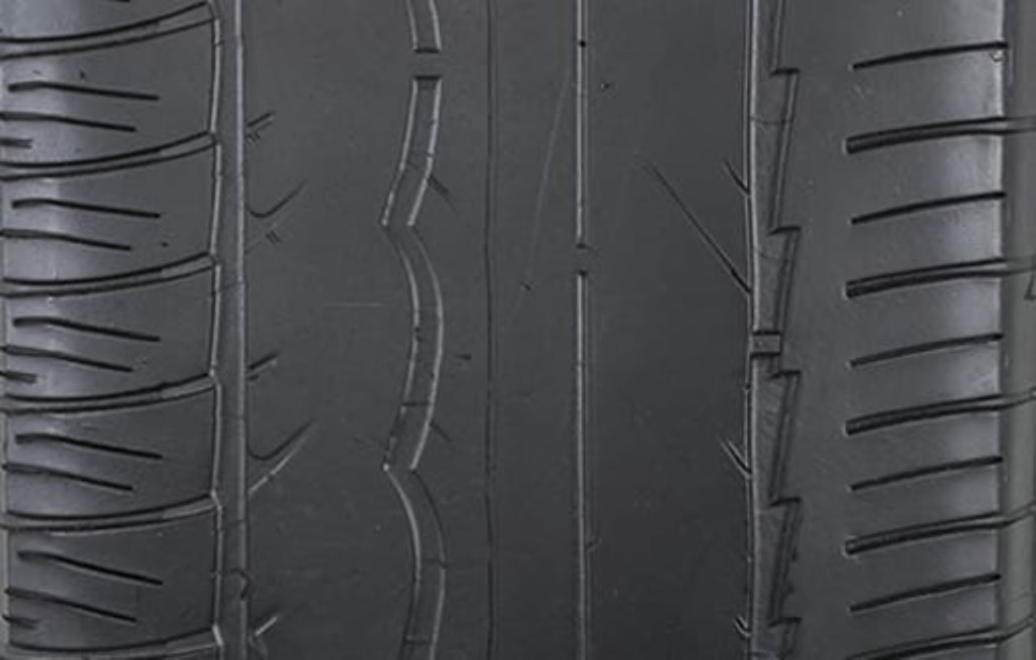
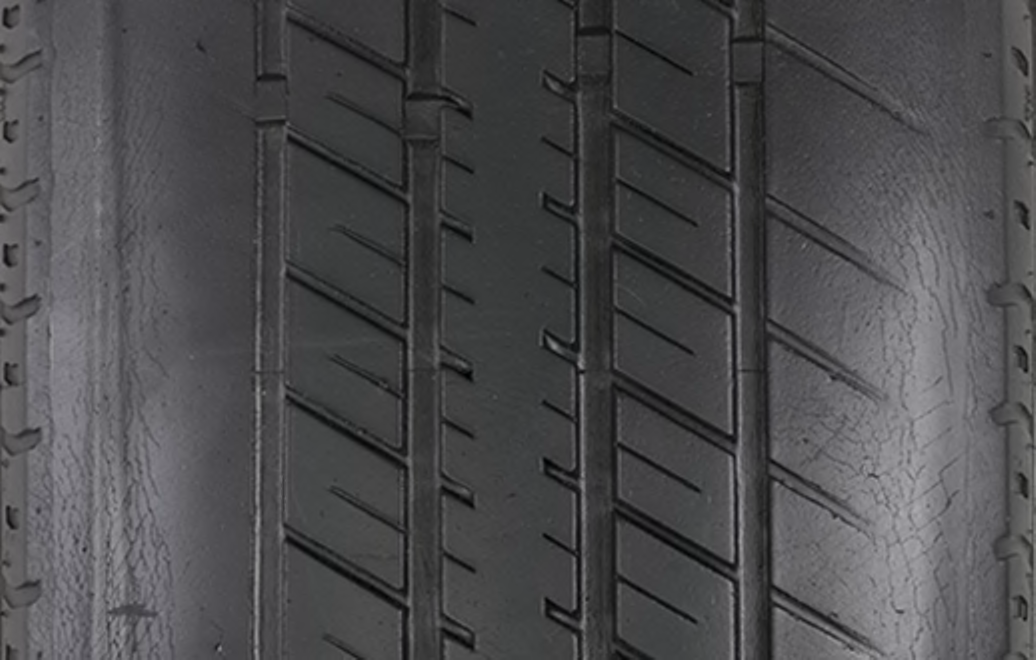
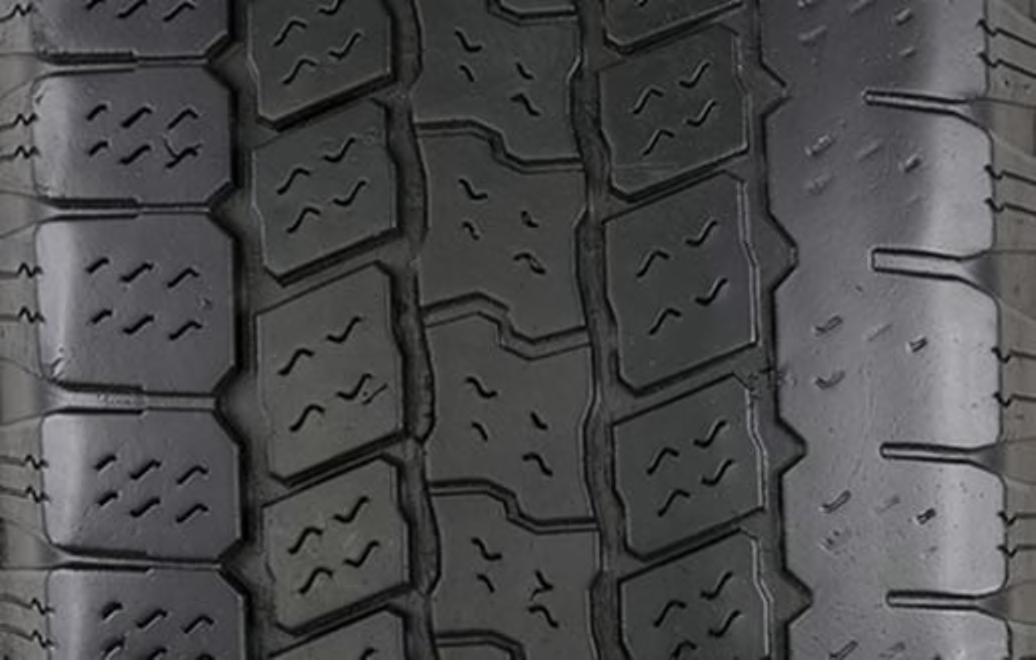
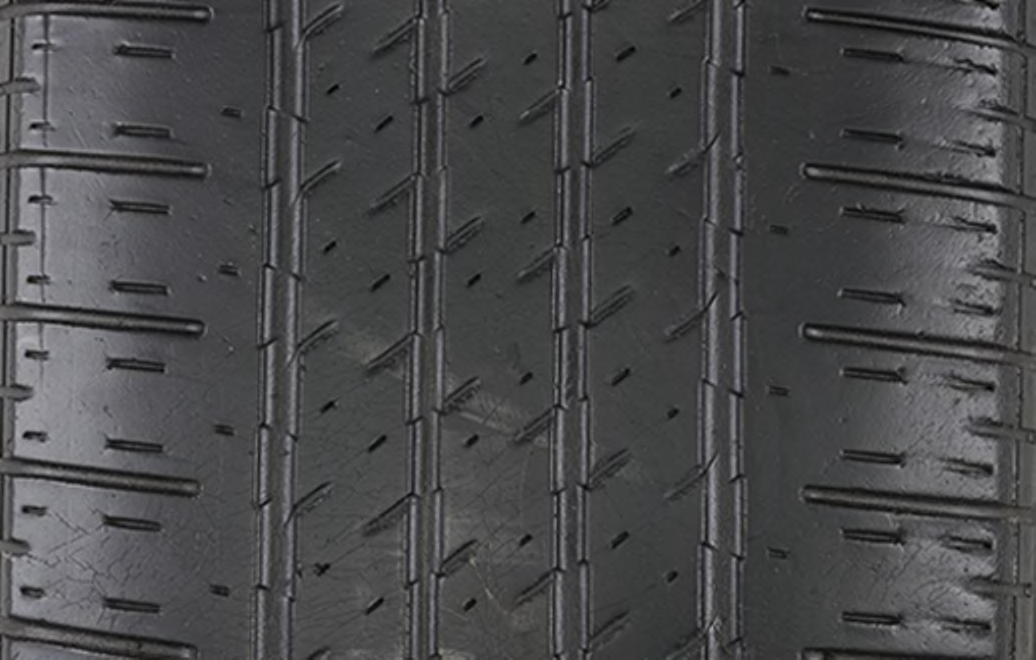
HOW WE TEST: CR has a comparative tread-life mileage figure in our ratings for all-season and performance all-season tires. Predicted mileage is based on our rigorous vehicle treadwear tests. We run tires around the clock over 1,000 miles a day. Car and truck tires are run for 16,000 miles. For more, see our tire ratings.
How to choose EV replacement tires


Have more tire questions? We have you covered.
-
Top Pick Tires: The best car, SUV, and truck tires
Photo: John Powers/Consumer ReportsConsumer Reports' testing reveals the best tires for each type of car.
-
Best tire values based on CR's tests
Photo: John Powers/Consumer ReportsThese car, SUV, and truck tires deliver the best performance for the money.
-
Best car tires
Photo: John Powers/Consumer ReportsWe highlight tires that shine all season, as well as the best tires for summer and winter.
-
Best SUV and truck tires
Photo: John Powers/Consumer ReportsHere are the tires that stand out for performance, safety, and treadwear.
-
Best winter/snow tires
Photo: ToyotaOur testing identifies standout tires with the best cold-weather grip.
-
Best all-season tires
Photo: HondaWe highlight the best tire and the best value tire in several popular categories.
-
Most and least satisfying tire retailers
Photo: Getty ImagesTire buyers rate 30 retail chains, as well as independent shops and car dealerships.
-
How to save money when buying replacement tires
Illustration: Lacey Browne/Consumer Reports, Getty ImagesExclusive survey reveals the best ways to lower the cost for tires.
-
Best tire brands
Photo: John Powers/Consumer ReportsOur test results reveal which companies make the best-performing tires.
